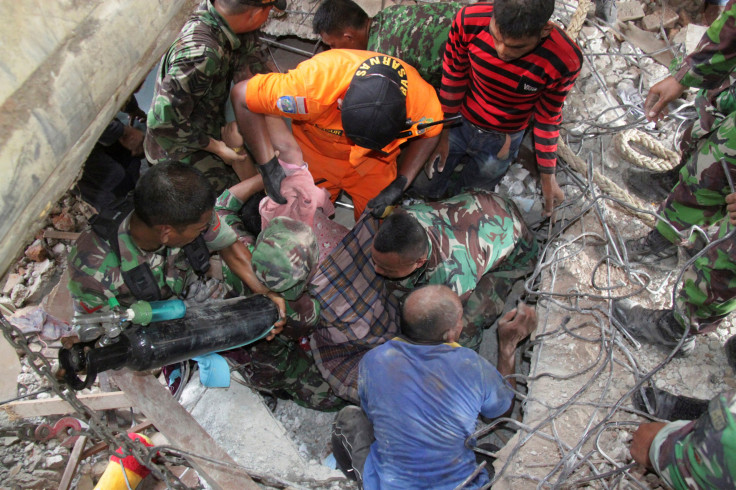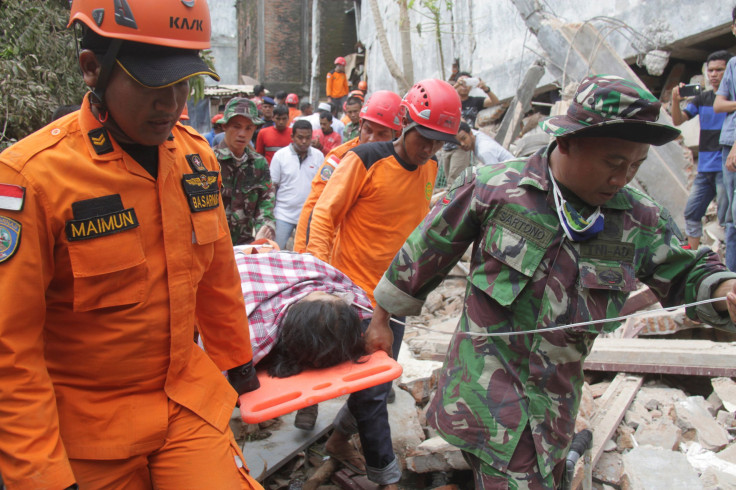How To Help Indonesia Earthquake Victims: Guide On Donating Money Or Blood After Aceh Province Disaster

Rescuers continued to search for survivors Wednesday after a 6.5 magnitude earthquake hit Indonesia's Sumatra Island early in the morning. The quake killed at least 97 and injured more than 500, according to the National Disaster Mitigation Agency.
Want to help? Indonesia's branch of the Red Cross was mobilized to help victims of the disaster amid the rubble of more than 200 buildings and was accepting donations for its relief efforts. Volunteers were deployed to search for survivors and provide first aid and basic medical services. The region is in critical need of food, safe water and shelter, according to a bulletin released by the agency. Monetary donations to help survivors and victims were being accepted at the Red Cross website.
Blood shortages at the Indonesian Red Cross are common even at times when there are no emergency situations and the need for blood donors in the country are at an all-time high, according to the Jakarta Globe. Indonesia currently has a shortage of about 500,000 blood bags, a number likely to go up in the wake of Wednesday's earthquake. The organization has not yet said if blood transfusions are needed for earthquake survivors but blood donations to the Red Cross are always accepted. For those in or near Indonesia, volunteers are also needed.
The earthquake's epicenter was in the Andaman Sea about six miles north of Reulet in northern Aceh. Most of the deaths from the earthquake occurred in Pidie Jaya, the district closest to the epicenter. At least five aftershocks followed and residents were urged to sleep outside in case additional shocks caused more buildings to collapse.

One of the largest earthquakes ever recorded hit Indonesia in December 2004. More than 200,000 Indonesians were killed when a 9.1 earthquake struck off the coast of northern Sumatra, causing a massive tsunami that devastated the region. Indonesia is particularly vulnerable to earthquakes because it sits on the boundary of two of earth's tectonic plates.
© Copyright IBTimes 2024. All rights reserved.






















